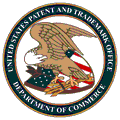
--David Kappos (currently head of the USPTO) speaking about patents
 Summary: In Re Bilski decision is imminent and the problems with the USPTO are meanwhile made more apparent, thanks to Acacia and Amazon
Summary: In Re Bilski decision is imminent and the problems with the USPTO are meanwhile made more apparent, thanks to Acacia and Amazon
EVERYONE keeps asking where the Bilski decision is. It will definitely be released this month [1, 2, 3, 4] and Red Hat's Fontana says that "Bilski is only remaining SCOTUS case to be decided from November 2009 sitting. Next day for opinions's Monday 21 June."
Acacia Subsidiary Acquires Rights to Patents for Video and Software Technologies from a Leading International Research Institute
[...]
The patented technologies generally relate to the encoding of video and tracking of video objects as well as software covering operating systems and object-oriented development environments.
theodp writes "After shelling out a reported $90 million to buy PlanetAll in 1998, Amazon shuttered the site in 2000, explaining that 'it seemed really superfluous to have it running beside Friends and Favorites.' But years later in a 2008 patent filing, Amazon described the acquired PlanetAll technology to the USPTO in very Facebook-like terms. And on Tuesday, the USPTO issued U.S. Patent No. 7,739,139 to Amazon for its invention, the Social Networking System, which Amazon describes thusly: 'A networked computer system provides various services for assisting users in locating, and establishing contact relationships with, other users. For example, in one embodiment, users can identify other users based on their affiliations with particular schools or other organizations. The system also provides a mechanism for a user to selectively establish contact relationships or connections with other users, and to grant permissions for such other users to view personal information of the user. The system may also include features for enabling users to identify contacts of their respective contacts. In addition, the system may automatically notify users of personal information updates made by their respective contacts.' So, should Facebook CEO Mark Zuckerberg worry about Amazon opening a can of patent whup-ass?"
Comments
Jose_X
2010-06-18 11:45:45
These supertroll business leaders will have so much leverage that entrepreneurialism will greatly suffer and software developers will have very little leverage since monopolies by law have little incentive to fear any competition and hence to spend their dollars on quality developers (who can't challenge them through a start-up).
That's right, support software patents and many business leaders and top software developers will lose their leverage to more savvy monopoly horders.
See http://www.linuxtoday.com/infrastructure/2010061701539OPMSSW "Watch Microsoft megatrolls monopolize Linux" (this one is mostly about mono)
Also, for humor: http://getnix.com/thetuxproject/?q=node/400 "The Stifling the Progress Weekly announces award winner: the USPTO"
Jose_X
2010-06-18 12:00:18
Not sure if you got my link message from irc yesterday. In any case, the second of the above links is a little bit of satire focused on how patents are absolutely intended to allow private individuals full tax rights and stifling rights. Too bad it's not a good intro for people that don't know too much about software patents. We need lots of new people to see sw patents for what they are and the trouble they will eventually cause, eliminating a lot of no charge software opportunities and small business opportunities, despite the fact those writing the open source intend for everyone to use it freely (and preferably to contribute back).